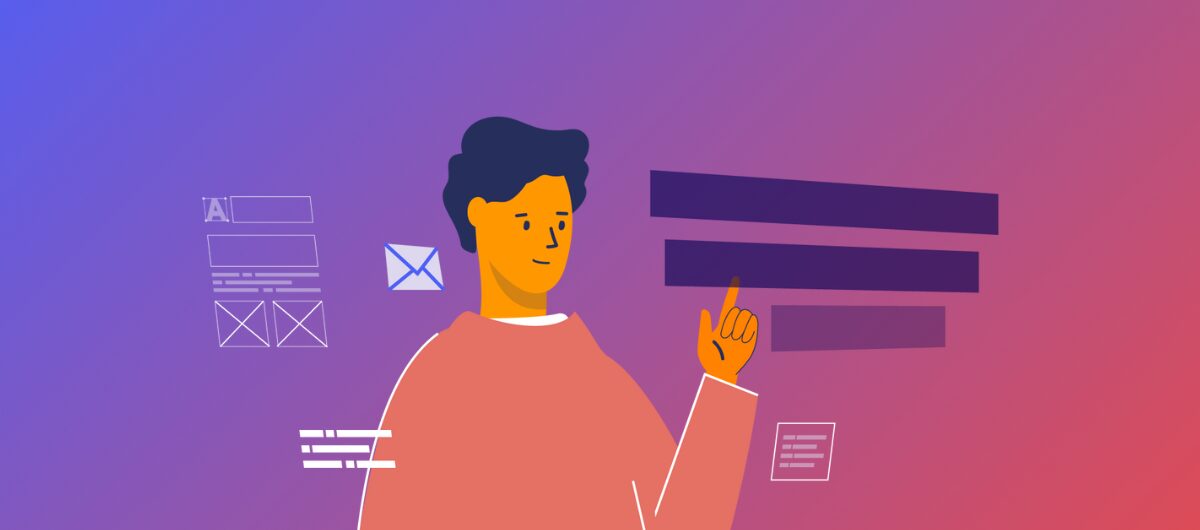Which Should Your Small Business Prioritize? Blogging or Podcasting?
January 31, 2023 5 min read

Effectively marketing a business requires quite a bit of content. That being said, you don’t always have time to create the various kinds of content you should be creating. While diversifying your content strategy with as many different types of formats as you can handle is usually the way to go (more on that later), there are times when you might find yourself trying to decide which direction to pool your resources towards.
Both blogs and podcasts are conversion-driven content methods that are worth your time and effort. On the blogging front, companies who produce blogs see an average of 67% more leads than companies who don’t. Meanwhile, the amount of monthly podcast listeners has grown 54% in just the past three years, suggesting a ton of potential for grabbing the ear of potential prospects.
There are clearly big benefits to these content strategies, but how do you decide which is better to consider for your business? We’re breaking down the benefits and potential pitfalls of both, as well as why you probably want to consider tackling both for content marketing success.
Blogging
Blogging is a mainstay strategy. Most brands have been prioritizing blogging for years, while some have found it difficult to stick to an editorial calendar. If you find yourself wondering if blogging really is all it’s cracked up to be, it’s time to dive into the benefits as well as things to keep in mind.
Benefits of Blogging
1. It can improve SEO
Done right, blogging is awesome for SEO, which means higher rankings on search results pages and more traffic to your site (about 55% more, to be exact). However, there’s a method to this madness, so you have to make sure to prioritize SEO throughout the content creation process.
2. It can boost ROI
In 2019, marketers who prioritized blogging saw a 13X higher ROI than those who didn’t. Why? Well, when you create blog content, you’re essentially fueling your email marketing. You’re providing leads with high-quality, informative articles that answer their questions and address their pain points. And when you do that, you’re building trust and shortening the lead cycle.
3. It can be more effective than ads
Standalone ads have their place, but 70% of consumers say they’d rather learn about a company through articles than advertisements. Paid ads are great at grabbing the attention of new leads and catching them where they’re already engaged (social media platforms or other online sites that sell ad space). However, they don’t do much to educate leads on a need they have or a question they have answered. That’s where blogging comes in.
Things to Keep in Mind About Blogging
1. Quality takes time
Writing is hard work, and the average post takes nearly four hours to produce. You have to take into consideration all the stages of the content creation process: ideation, research, writing, editing, optimizing for SEO and adding the right backlinks, another round of edits, then distribution.
2. There’s steep competition
It’s definitely possible to succeed with your blogs, but you’ll have a lot of competition in doing so. There are more than 600 million active blogs on the web, and if you’re late to the blogging game, your competitors probably already have you beat.
3. It’s not just about text
The most effective blogs today contain images, statistics, and contributor quotes in addition to word copy. So while it’s great to create consistent written content, it’s crucial to also be incorporating visual content, data, and input from industry influencers into your blogging strategy.
Podcasting
Podcasting has exploded in the past couple of years. They’re a great way to get your brand in front of a new audience and engage in a new way. Unlike blogging, podcasting isn’t necessarily a pillar of any marketing plan, but that doesn’t mean there isn’t tons of value from having one.
Benefits of Podcasting
1. It’s a growing medium
Podcasting isn’t as popular as blogging with businesses, but with 37% of Americans listening to podcasts every month, there’s a big chance to make a mark. Getting involved with something while it’s still growing means you have more time to build a solid audience and tap into a less saturated market.
2. The format is optimal for education
If you’re looking to share tons of insight, personal experience and become a thought leader in your space, podcasting is a great format to consider. This kind of agenda can be amplified through guest appearances or by hosting your own podcast. The former is also ideal for tapping into third-party credibility and a larger audience.
3. It’s “smart” tech-driven
Tons of people now own smart speakers like Amazon Alexa and Google Home, both of which are ideal for podcast consumption. With podcasts being available on different platforms, it makes your brand more accessible to the masses.
Things to Keep in Mind About Podcasting
1. It’s not quick
This isn’t a quick-win type of deal. Podcasts take a lot of time to plan, produce, and edit, and it can also take time to gain a following. Like blogging, you need to have consistency, patience, and strategy to drive these efforts towards success.
2. It’s not CTA based
You can certainly end your podcast with a verbal CTA or a promotion of some kind, but you’ll obviously miss out on having a clickable button. Instead of driving digital interaction, your podcast is more about engagement and brand awareness. So, if you’re hoping to use a podcast to promo a new product, that can certainly happen, but it may not be as impactful as you hope.
3. It’s not intuitive
You’ll have a lot to learn before you can publish your first podcast — certainly more than you need to learn to create a blog post. It’s important to do your research and see what kind of tools you’ll need to ensure a clear, high-quality sound. This could mean renting out space and investing in expensive equipment. You’ll also want to make sure whatever network you join makes sense for your podcast focus and brand.
Why Not Just Do Both?
They may differ in format, but blogs and podcasts both share some of the same basic elements, including the need to hone in on your target audience and to create well-researched, original content. It may seem intimidating to get the ball rolling with just one, let alone both, but these elemental overlaps mean that a lot of the work is relatively the same — you can even turn your blog research into a podcast on the same topic and vice versa.
Doing both blogging and podcasting also helps fill in the gaps that one or the other may leave behind. For example, you may have variations within your audience of who’s more likely to engage with one medium over the other (men, for instance, are slightly more tuned in to podcast listening than women).
Ultimately it’s up to you to decide what you have the bandwidth for and what makes the most sense for your audience and your objectives. And thanks to the growth in digital marketing tools, it’s easier than you might be thinking to get started with either format — and no, you won’t need a degree in radio to begin publishing podcasts.
Assess your marketing goals and your budget when determining where your resources should be funneled, and always keep a close eye on your data analytics to see how your various efforts are performing.



